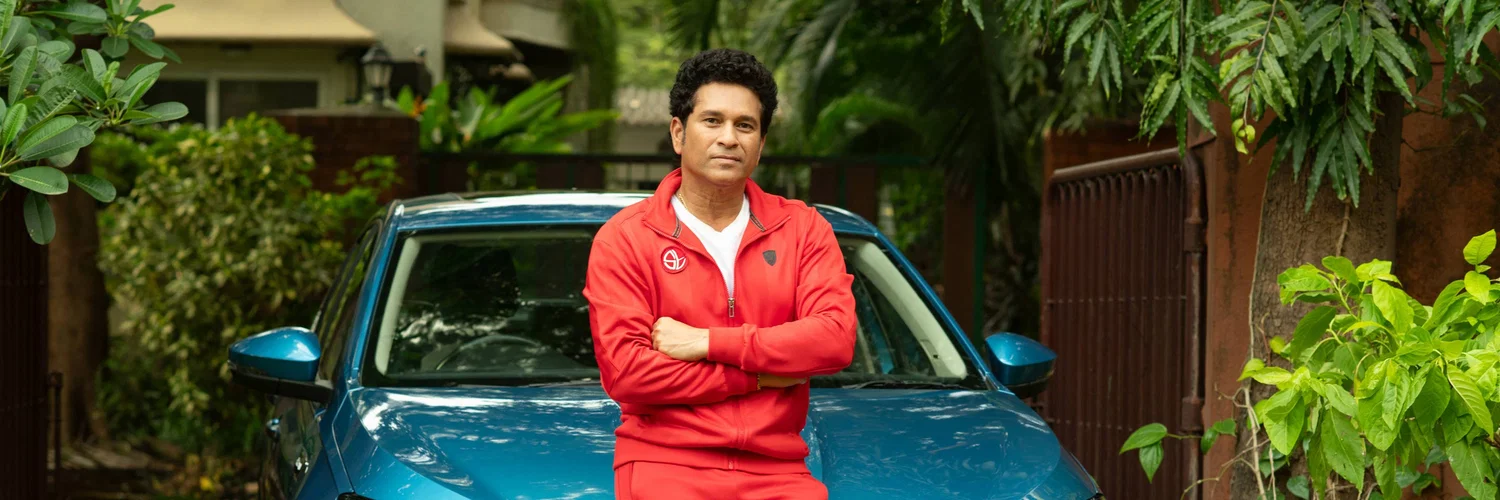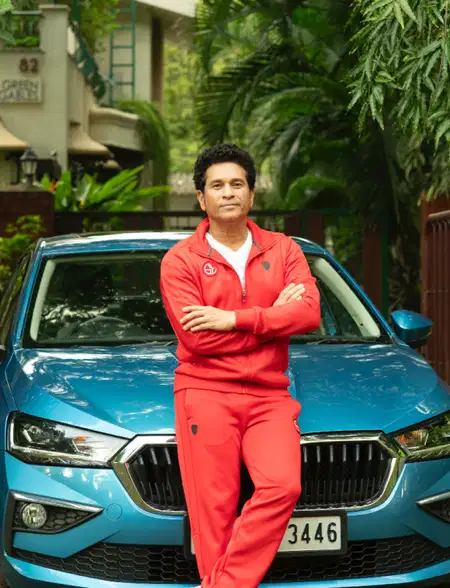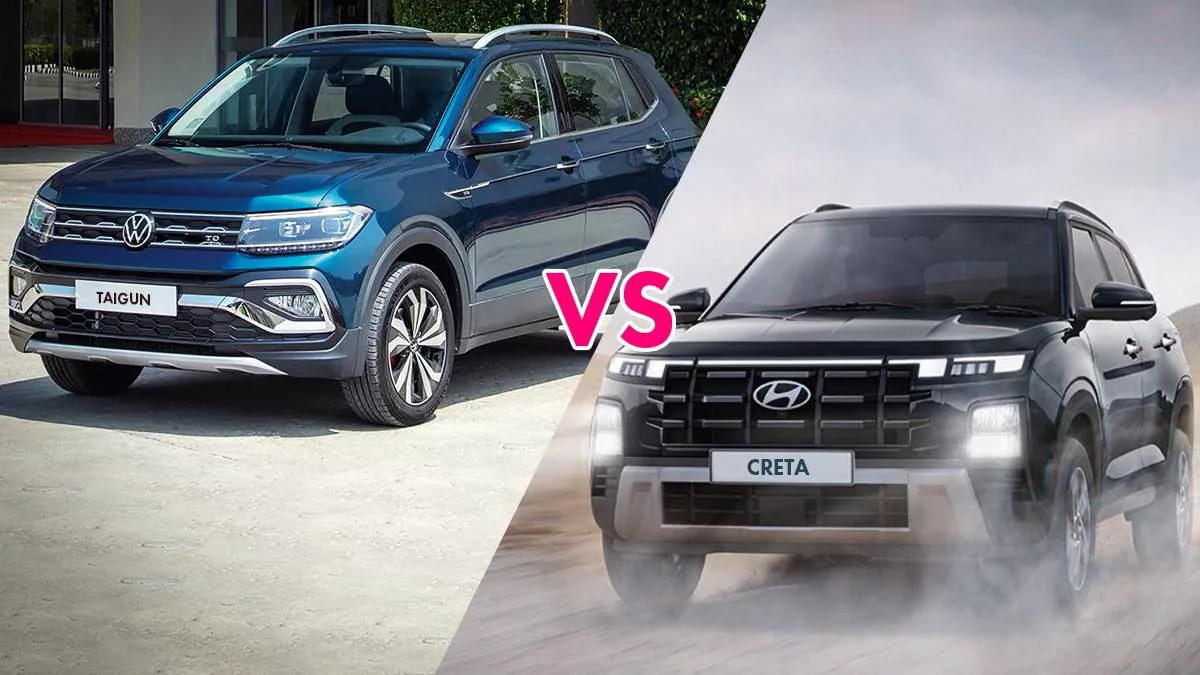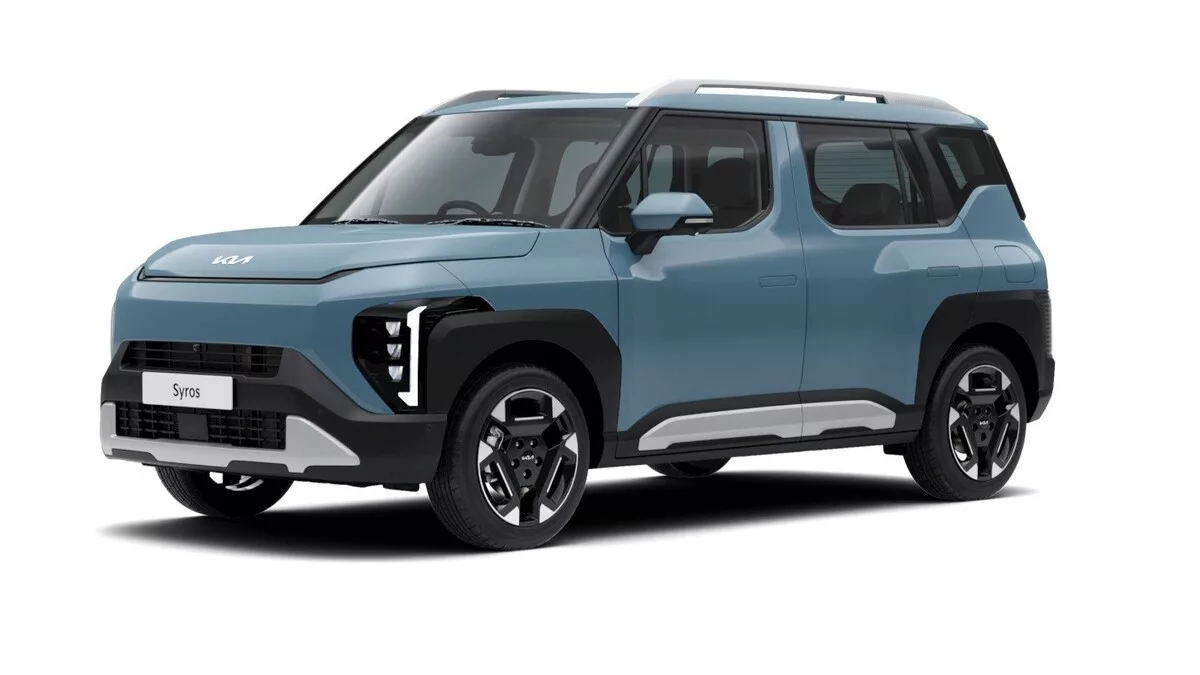Tata launched the Harrier in early 2019 to shake up the midsize SUV market, where Jeep has a surefooted product—the Compass. The two midsize SUVs come to blows with each other as they fall in the Rs. 20 Lakh to 25 Lakh segment. At the same time, some of their variants and trims stretch out their range a bit further to Rs. 16 Lakh and Rs. 32 Lakh. With such a huge price gap, the variants bring many different things to the table at different levels.
The Jeep Compass is one of the few American cars that is still going strong in India. It offers most, if not all, premium features in its segment, along with a strong all-wheel drivetrain and a taste of Jeep’s impeccable legacy. Tata, on the other hand, prides itself on making some of the strongest and safest cars in the country for a reasonable price. The Harrier boasts an undeniable road presence and futuristic features at a relatively affordable price. The two midsize SUVs have a lot in common but also offer different things for different people, so let’s check out their pros and cons and how they compare.
Tata Harrier vs Jeep Compass: Dimensions
Parameter | Tata Harrier | Jeep Compass |
Length (mm) | 4605 mm | 4405 mm |
Width (mm) | 1922 mm | 1818 mm |
Height (mm) | 1718 mm | 1640 mm |
Wheelbase (mm) | 2741 mm | 2636 mm |
Boot Space (L) | 445 litres | 438 litres |
Ground clearance (mm) | 205 mm | 178 mm |
If the size of an SUV is one of the more important things, you’ll have a clear choice to make here. Compared to the Jeep Compass, the Tata Harrier has slightly larger numbers across all areas. The Harrier is taller, wider, and longer than the Jeep Compass. The Harrier even has a longer wheelbase and a higher ground clearance than the Compass. Regarding boot space, once again, the Harrier gains the upper hand with seven more litres of volume.
The Harrier is 200 mm longer than the Compass, which helps the Harrier project a larger road presence, especially viewed from the side. Inside, the longer body helps it give more legroom to the people in the second row. The 104 mm extra width the Harrier has over the Compass makes sure that it can fit 3 people in the second row comfortably, which is a boon for 5 people sharing a car on a long road trip. For the taller people out there, the Harrier’s roof is 78 mm higher than the Compass, so they do not have to worry about their heads touching the roof constantly or taking a bump to their heads whenever the car takes a bump. The extra wheelbase helps with better stability during cornering, while more ground clearance is one of the most important features a car needs to have to tackle the uneven roads of India.

However, while the Compass may be smaller in size when it stands next to the Harrier, if we look at it objectively, there’s not much to complain about. The Harrier makes sense for people wanting every inch (or rather mm) of extra space inside as they can. But the Compass is an adequately sized midsize SUV for the average Joe. If you fancy the Compass more, its dimensions are decent enough to not become dealbreakers of any sort.
Here, the choice comes down to spaciousness versus manoeuvrability. The Tata Harrier gives you that extra space for a more comfortable experience sitting inside it. The Compass, on the other hand, is easier to handle and drive in city streets and parking lots.
Tata Harrier vs Jeep Compass: Engine & Transmission
Parameter | Tata Harrier | Jeep Compass |
Engine options | 2.0-litre Kryotec Turbocharged Diesel | 2.0-litre Multijet II Diesel |
Transmission options | 6-speed Manual 6-speed AMT (TC) | 6-speed Manual 9-speed AMT (TC) |
Power | 170 PS | 174 PS |
Torque (Nm) | 350 Nm | 350 Nm |
Mileage | 14.6 to 16.8 km/l | 16.2 to 17.1 km/l |
An engine is one of the most important parts of a car. Hence, the engine of a car should play a big part when we check out a new car or even a used car. In this case, the two midsize SUVs both require a powerful motor to make sure that there’s plenty of grunt to move the big car and the people inside as hastily as needed. Thankfully, both the Tata Harrier and the Jeep Compass have nailed the performance area well. Moreover, the engines of the two cars here are pretty evenly matched, so you’ll be fine with either one you choose to go with.
Both the Harrier and the Compass come with the same 2.0-litre multijet diesel engine with a turbocharger feeding dense air for more power. The Harrier’s Kryotec motor makes 170 PS, while the Jeep Compass manages to squeeze 174 PS from the engine. Moreover, the two cars even stand close to each other in the kerb weight section, with the Harrier weighing 1655 kg and the Compass only 5 kg lighter. The torque figures are identical, with both cars powering the wheels with the might of 350 Nm. Therefore, the power-to-weight ratio is nearly indistinguishable between both SUVs.
Both SUVs offer a 6-speed manual if you like a more hands-on experience. For those who want their left hand to be on the steering wheel more, there’s an automatic, too. Both SUVs offer a torque converter. While the Harrier comes with a 6-speed, the Compass offers a 9-speed automatic transmission.

Another crucial feature for most buyers is the mileage of a car. The Tata Harrier claims ARAI mileage of 14.6 to 16.8 km/l. In this case, the Jeep has a leg up (albeit slightly) with a claimed ARAI mileage of 16.2 to 17.1 km/l. However, the actual mileage depends on how the driver handles the car.
Since both SUVs share the same engine, the choice between the two comes down to the transmission offered and the small difference in their fuel efficiency. Hence, the buyer’s preference takes the lead in terms of the final choice.
Tata Harrier vs Jeep Compass: Features and Comfort
Feature | Tata Harrier | Jeep Compass |
Infotainment System | 10.24-inch HD infotainment system with Android Auto and Apple CarPlay | 10.1-inch Touchscreen Infotainment System with Android Auto and Apple CarPlay |
Music System | 4 speakers | 4 speakers |
Climate Control | Yes | Yes |
Ventilated Seats | Yes | Yes |
Adjustable Steering | Tilt & Telescopic | Tilt & Telescopic |
Drive Modes | Yes | Yes |
Instrument Cluster | Digital | Digital |
Sunroof | Yes | Yes |
Adjustable Seats (Manual or Electric) | Electric | Electric |
Rear AC Vents | Yes | Yes |
60:40 Rear Seat Split | Yes | Yes |
Cruise Control | Yes | Yes |
Now, this is where it gets interesting. Tata’s SUV lineup ranges from the affordable Punch to the giant Safari, and the Harrier comes in as a luxurious and big SUV that is prepared for almost everything that the Indian roads have to offer. The Compass, on the other hand, is an off-road capable SUV from an American company. Therefore, the Compass comes jam-packed with all the off-roading capabilities and tech features one would expect, be it mechanical or luxurious.
Both cars have the typical list of features covered. Features like a big touchscreen infotainment system, a sunroof, automatic climate control, rear AC vents, cruise control, telescopic steering wheel adjustment, and different driving modes are present in both the Harrier and the Compass. But you will find it in any decent variant of a car that is Rs. 5 Lakh cheaper than these two behemoths. Ventilated seats, electrically adjustable front seats, advanced telematics, connected car features, gesture-controlled power tailgate, wireless charging, and terrain response modes are some of the advanced features you will find in these SUVs.
Overall, for the price that they are selling for, you can safely conclude that the Harrier and Compass come with all the embellishments you would expect and then some. Regardless of the engine’s performance (though that’s nothing to worry about either), the Harrier and Compass will not disappoint in the features department.
Overall, for the price that they are selling for, you can safely conclude that the Harrier and Compass come with all the embellishments you would expect and then some. Regardless of the engine’s performance (though that’s nothing to worry about either), the Harrier and Compass will not disappoint in the features department.
Tata Harrier vs Jeep Compass: Safety Features
Feature | Tata Harrier | Jeep Compass |
GNCAP Safety Ratings | 5 Star (Global NCAP) | 5 Star (Euro NCAP) |
Airbags | 7 | 6 |
ABS with EBD | Yes | Yes |
ESC | Yes | Yes |
Traction Control | Yes | Yes |
Automatic Headlamps | Yes | Yes |
Rain-sensing Wipers | Yes | Yes |
Hill Hold Assist | Yes | Yes |
Hill Descent Control | Yes | Yes |
Rear Sensors | Yes | Yes |
Rear Parking Camera | Yes | Yes |
ISOFIX Child Seat Anchor Points | Yes | Yes |
ADAS | Yes | No |
Safety is one of the most important things you can ask for in a car. Thankfully, Tata prides itself on making some of the safest cars in the country, and the Jeep Compass is no tin can either. The Tata Harrier scored an astonishing 5 stars in the Global NCAP safety crash test, the highest number of stars given. The Compass, on the other hand, attained the 5 stars but in Euro NCAP.
In the safety tech department, both SUVs have the standard list of features. Both SUVs have ABS, EBD, ESC, and other such acronyms under their belt. You will also see a rear parking camera, hill hold assist, hill descent control, auto headlamps and wipers, and traction control in both. The Harrier makes use of ADAS with 11 key features, such as adaptive cruise control and Stop & Go. The current Jeep Compass does not have ADAS. However, the updated 2024 iteration of the Jeep Compass will feature an ADAS suite filled with the likes of forward collision warning, lane departure warning, blind spot monitoring, and automatic braking.

However, there is one aspect where the Compass comes out on top, and that’s the mechanical and off-roading capabilities. The Harrier may have a larger wheelbase and bigger ground clearance than the Compass, but it’s still a FWD SUV. The Compass, on the other hand, makes use of all 4 wheels thanks to its all-wheel drivetrain. The midsize SUV’s 4×4 calibre, paired with the smooth and very intelligent 9-speed torque converter, gives it a huge advantage over the FWD Tata Harrier (and most other SUVs in that segment) when it comes to going well beyond the reach of asphalt.
In this department, the choice is as clear as it gets. Both SUVs are decent enough in multiple areas to not be a dealbreaker. But they excel in different areas. The Tata Harrier offers ADAS for a more convenient driving experience and Jeep is yet to bring that to Compass. Though, the Compass comes with unparalleled off-roading capabilities that few other cars can match.
Tata Harrier vs Jeep Compass: Prices & Variants
Variant | Tata Harrier | Jeep Compass |
Base | Rs. 15.49 - Rs. 15.99 lakh | Rs. 20.49 lakh |
Mid | Rs. 16.99 - Rs. 21.39 lakh | Rs. 21.99 - Rs. 26.49 lakh |
Upper-Mid | Rs. 20.19 - Rs. 24.09 lakh | Rs. 24.12 - Rs. 28.49 lakh |
Top | Rs. 22.99 - Rs. 26.44 lakh | Rs. 27.99 - Rs. 32.07 lakh |
Like most other cars available in the market, the Tata Harrier and Jeep Compass are available in multiple variants so that the SUVs are accessible to a lot of people according to their needs and budget.
Tata’s habitual nomenclature for the different variants (XE, XT, XZ, XZ+) doesn’t apply to the Harrier and some other facelifted Tata products anymore. The base model of the Harrier is now called Smart, which costs between Rs. 15.49 and Rs. 15.99 lakh. The mid variant is now called Pure, ranging from Rs. 16.99 to Rs. 21.39 lakh. After that comes Adventure, which is the upper-mid variant with a Rs. 20.19 – Rs. 24.09 lakh price tag. And finally, we have the top-level Fearless variant, which sets you back Rs. 22.99 to Rs. 26.44 lakh.
Jeep also offers the Compass in multiple variants, the most basic of which is named Sport, and it costs Rs. 20.49 lakh. Next up is the Longitude, ranging from Rs. 21.99 to Rs. 26.49 lakh. You can consider both Limited and Blackshark to be upper-mid variants, judging by the features they offer and the Rs. 24.12 to Rs. 28.49 lakh price range they fall in. The top variant is called the Model S (not to be confused with a certain Tesla). The top variant falls in the Rs. 27.99 to Rs. 32.07 lakh price range.

The huge price gap between the Tata Harrier and Jeep Compass is as clear as a sunny day with no skies. Compared to the Compass, the Tata Harrier will cost roughly Rs. 5 to 6 lakh less, making it a winner in the value-for-money race. Apart from Jeep’s legendary brand name and off-roading skills, the Harrier either matches or exceeds what Jeep brings to the table in other areas for a significantly affordable price.
Tata Harrier vs Jeep Compass: Summary
There you have it — the two midsize SUVs have a lot in common and, at the same time, offer different things to different people according to their needs. Both SUVs offer premium build quality, safety, luxury, and advanced tech to satisfy most people’s desires for a new car.
If you want an SUV that is big, has an undeniable road presence, has plenty of features, and doesn’t cost as much as its competitors, the Tata Harrier is the one you should consider first. The Jeep Compass makes more sense for people with slightly more budget who want a taste of foreign design, and extra off-roading capabilities.





